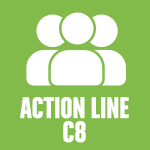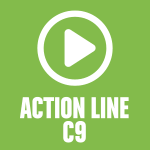Harnessing Technology for Refugees
WSIS
Session 121
By the end of 2017, people forced from their homes and communities reached 68.5 million, of whom 25.4 million are refugees while 40 million are internally displaced. They are among those at risk of being left behind, whose lives and future depend a great deal on conditions and prospects in host countries or communities. About 85% of refugees are hosted in developing countries already facing a range of development challenges, and most do not live in camps; about 80% of refugees and 60% of the internally displaced live in urban areas or cities, posing sustainable development pressures as well as growth opportunities to local governments and communities.
This Thematic Workshop will explore how technology can be harnessed to respond to the needs of vulnerable populations aligning with the Sustainability Development Goals of the 2030 Agenda
Objectives
- Deepen understanding of today’s key issues and trends related to forced displacement, with a focus on those that can be addressed with the use of technology, ex blockchain
- Enhance knowledge of efforts around the world with case studies
- Advance discussions on innovation across agencies and explore recommendations for enhancing partnership and collaboration
Proposed Programme
- Welcome and introduction of panellists
- Setting the Stage [The development imperative, refugees/forcibly displaced/etc., LNOB, role of tech, including key issues and trends]
- Deep dive on key issues and trends, with examples and case studies framing the urgencies
- Discussions on opportunities and challenges, with a view of raising recommendations for potential efforts
- Conclusions and resume of key points rising from session
- Close and network linking
Moderator
Ms. Minerva NOVERO, United Nations Development Programme (UNDP)
Speakers/Panellists
Ms. Hanisha JAGTIANI, World Food Program (WFP)
Mr. Peter BALLEIS, Jesuit Worldwide Learning (JWL)
Mr. William QUIVIGER, International Organization for Migration (IOM)
Session's link to WSIS Action Lines
-
 C4. Capacity building
C4. Capacity building
-
 C6. Enabling environment
C6. Enabling environment
-
 C8. Cultural diversity and identity, linguistic diversity and local content
C8. Cultural diversity and identity, linguistic diversity and local content
-
 C9. Media
C9. Media
-
 C11. International and regional cooperation
C11. International and regional cooperation
Session's link to Sustainable Development Process
-
 Goal 2: End hunger, achieve food security and improved nutrition and promote sustainable agriculture
Goal 2: End hunger, achieve food security and improved nutrition and promote sustainable agriculture
-
 Goal 3: Ensure healthy lives and promote well-being for all
Goal 3: Ensure healthy lives and promote well-being for all
-
 Goal 4: Ensure inclusive and equitable quality education and promote lifelong learning opportunities for all
Goal 4: Ensure inclusive and equitable quality education and promote lifelong learning opportunities for all
-
 Goal 8: Promote inclusive and sustainable economic growth, employment and decent work for all
Goal 8: Promote inclusive and sustainable economic growth, employment and decent work for all
-
 Goal 11: Make cities inclusive, safe, resilient and sustainable
Goal 11: Make cities inclusive, safe, resilient and sustainable
-
 Goal 16: Promote just, peaceful and inclusive societies
Goal 16: Promote just, peaceful and inclusive societies
-
 Goal 17: Revitalize the global partnership for sustainable development
Goal 17: Revitalize the global partnership for sustainable development